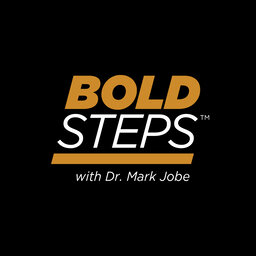Why Do They Call It Good Friday? – Part 1
Have you ever wondered why the Friday before Easter is called “Good Friday”? We’ll find out today on BOLD STEPS with Pastor Mark Jobe. With Easter coming up this weekend, the focus for many Christians is first on Good Friday. Mark is going to create a picture of the time around the death of Jesus and help us understand why we call it “Good” when we really should perhaps be calling it “Bad!”.
Bold Steps Gift: THE SIX CONVERSATIONS: PATHWAYS TO CONNECTING IN AN AGE OF ISOLATION AND INCIVILITY
 Bold Steps with Dr. Mark Jobe
Bold Steps with Dr. Mark Jobe



